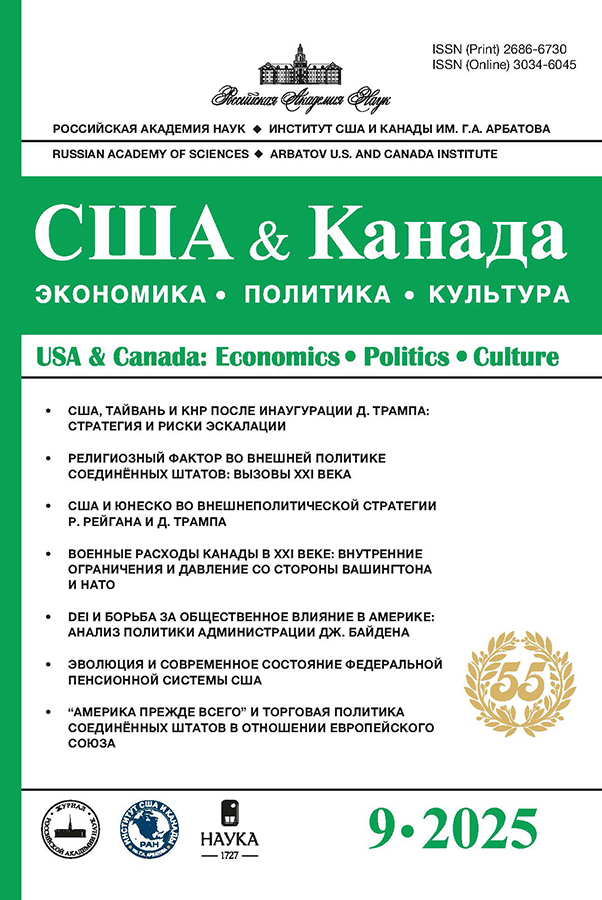U.S. Religious Diplomacy in the 21st Century: A Foreign Policy Instrument or a Tool for Domestic Political Struggle?
- Authors: Tsvetkov I.A1
-
Affiliations:
- Institute of World History, Russian Academy of Sciences
- Issue: No 9 (2025)
- Pages: 101-114
- Section: Religious Diplomacy
- URL: https://rjonco.com/2686-6730/article/view/694126
- DOI: https://doi.org/10.31857/S2686673025090097
- ID: 694126
Cite item
Abstract
The role of religion in U.S. foreign policy has significantly increased in the 21st century, primarily due to the rising influence of conservative evangelical groups. Amid shifting demographic trends, reliance on Christian fundamentalists has become essential for the Republican Party's political survival. Donald Trump’s example demonstrates that genuine religious devotion is less critical than employing rhetoric and actions appealing to religious conservatives. Despite ambiguity surrounding Trump's personal religious beliefs, he effectively branded himself as a defender of religious freedoms. However, his second-term decisions to cut funding for international aid programs provoked criticism even from traditionally supportive conservative Christian groups. The article traces the evolution of American religious diplomacy from the 1998 International Religious Freedom Act to contemporary developments, assessing the effectiveness of implemented measures. It concludes that religious diplomacy has taken on a distinctly partisan character and argues that for Republicans, it serves less as a foreign policy tool than as an instrument of domestic political mobilization.
About the authors
I. A Tsvetkov
Institute of World History, Russian Academy of Sciences
Email: ivan558@mail.ru
ORCID iD: 0000-0002-5503-0763
ResearcherId: M-1316-2015
Moscow, Russia
References
- Alkhimenkov M. A. Religious Aspects of the U.S. Republican Party’s Foreign Policy Postulates: Conservative Evolution 2008–2011. USA ❖ Canada: economics, politics, culture, 2013, no. 11, pp. 38-52 (In Russian).
- Alkhimenkov M. A. The American Messianismʼs Influence on D. Trumpʼs Views and Policies. National Strategy Issues, 2018, no. 3, pp. 57-72 (In Russian).
- Frolova O. A. Religion as a Primary Channel for Projecting Government Interests onto Civil Society in the United States During the Election Campaign. RUDN Journal of Political Science, 2016, no. 4, s. 95-100 (In Russian).
- Ozcelik O. M., Okur M. A. The evangelical effect over Donald Trump’s policies toward Israel and Iran. Yıldız Social Sciences Institute Journal, 2021, no. 1, pp. 12-25.
- Tsarevskiy A. N. Rol' khristianskikh religioznykh dvizheniy vo vneshney politike SShA na sovremennom etape [The Role of Christian Religious Movements in the U.S. Foreign Policy at the Present Stage. Bulletin of Perm University. Political Science, 2011, no 1. pp. 114-126] (In Russian).
- Wald K. D., Calhoun-Brown A. Religion and Politics in the United States. (6th Ed.) Lanham, Maryland: Rowman & Littlefield, 2011.
Supplementary files











